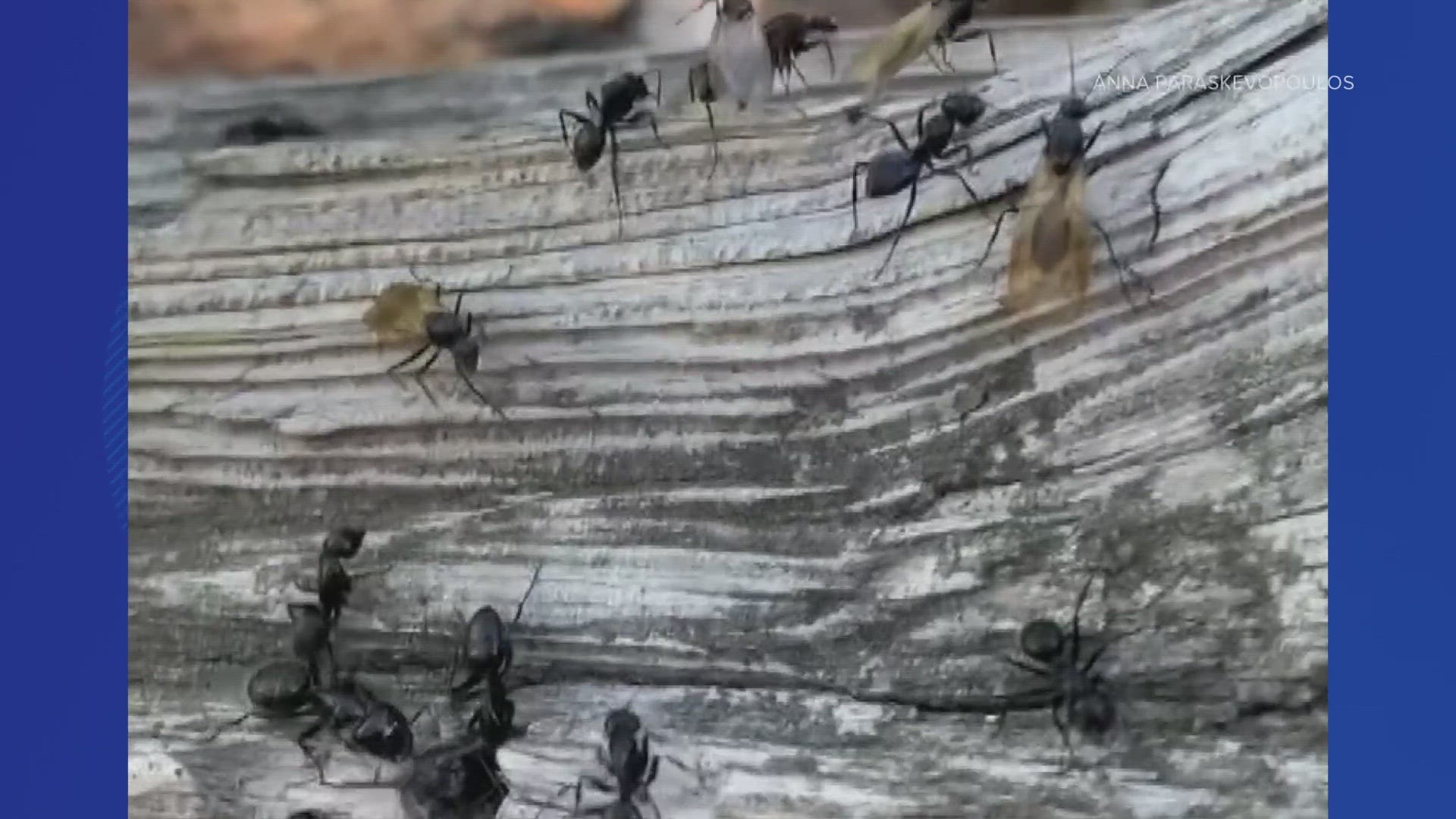BOULDER, Colo. — Ants are on the move, partially due to climate change.
That's according to a new study conducted at the University of Colorado Boulder. Researchers there were able to look at data taken in a 60-plus-year time span and see how certain ant species were forced out of the original habitats along Gregory Canyon in Boulder.
Ants, just like other insects, reptiles and arthropods, are ectothermic, meaning that their body temperature is heavily dependent on the environment. Because of that, ants can be extremely reactive to fluctuations in temperature, making them a great candidate to study the effects of climate change.
"We looked at how ant communities have changed locally over time and we essentially found that there were more similarities in terms of the ant species that were present in the community than there was historically," said Anna Paraskevopoulos, lead author of the study and a PhD student in the Department of Ecology and Evolutionary Biology. "We also saw a large number of unique species, so it's indicating that ants are moving and potentially new things are coming into the area, while things that were present historically have maybe left the area or potentially we just weren't able to detect them."
That original data, taken in 1957 and 1958, is all thanks to a CU Boulder entomologist named Robert Gregg and his student, John Browne. Six decades later, Paraskevopoulos and Dr. Julian Resasco, the paper's senior author and assistant professor, were able to help close the loop by taking samples at the same survey sites.
"Unfortunately we don't have monitoring data for insects and so you know, by being able to resample these historical studies, it can give us glimpses into how insect biodiversity is is changing over long, long time periods," said Resasco.
The location of the study is unique too, given how Gregory Canyon has remained largely unchanged over the past century.
"One of the benefits of working in this area and why I think this also is a cool study, is this area hasn't really changed much since that historical study was done. It has been maintained by the City of Boulder. So it kind of lets us look at how changes are happening without really worrying about that, like, land use change part as much," said Paraskevopoulos.
The larger picture
Ants are crucial to ecosystems, not just here in Colorado, but across the planet. Now it's still unclear how much a change in ant populations can affect a given ecosystem but the disappearance of one species can affect other organisms that might rely on them.
"Ants are the movers and shakers in an ecosystem. They perform really important functions like turning over the soil, they're food for wildlife, they can control pests. And so it's really important for the functioning of our ecosystem to understand how they're changing in the face of impact of humans and things like climate change," said Resasco.
Around the world, insect populations have been quickly declining and these findings figure to be a small piece of that larger puzzle.
According to an analysis of 16 different studies, insect populations have declined by 45% in the last four decades.
SUGGESTED VIDEOS: Latest from 9NEWS
Watch more from 9NEWS on the free 9NEWS+ app for Roku and Fire TV.
9NEWS+ has multiple live daily shows including 9NEWS Mornings, Next with Kyle Clark and 9NEWS+ Daily, an original streaming program. 9NEWS+ is where you can watch live breaking news, weather updates, and press conferences. You can also replay recent newscasts and find videos on demand of our top stories, local politics, investigations and Colorado specific features.
To download 9NEWS+ on Roku search for KUSA.
To download 9NEWS+ on Fire TV search for 9NEWS.

